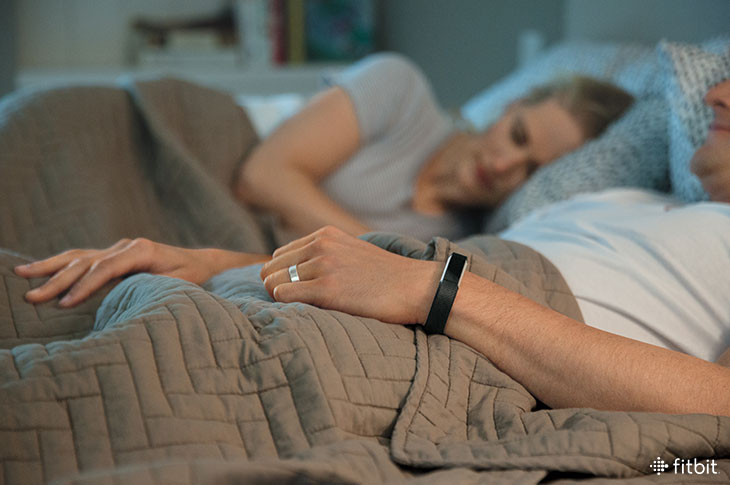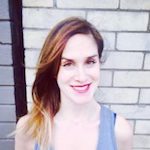
You’re finally done typing up that work report after downing a late-night mocha, so you reward yourself with a peek at Facebook. That leads you down a rabbit hole that somehow results in a deep Wikipedia dive, so you turn off the laptop and head for bed. Only to find yourself, scrolling through Instagram until you pass out.
Sound familiar? If you’re actively engaging in any (or all—no judgment!) of these behaviors, you might be finding your sleep is less than stellar. And unfortunately, even if you’re eating right and exercising regularly, subpar shut-eye can jeopardize your well-being.
Why Sleep Matters
“Sleep is essential for optimal health,” says Erica Matluck, a naturopathic doctor at One Medical in San Francisco and the founder of Seven Senses. “Sleep is the time where our bodies repair and heal. It’s the state in which we recover from any exposures, challenges, and stresses during the day.”
But let’s face it: you’ve got stuff to do. So how much time do you really need to recharge? “Most adults need seven to nine hours, but our needs csan change depending on where we are on the continuum of health,” says Matluck. “For example, when we’re ill or recovering from a medical procedure, our sleep demands may be higher than when we’re feeling our best.”
So what can you do if counting sheep isn’t cutting it? Plenty.
Just Say No to the Glow
“The blue light emitted from screens on our electronics suppresses natural melatonin production,” explains Matluck. “Melatonin is a hormone that controls our sleep-wake cycles and when it’s high, it makes us sleepy. I recommend avoiding screen time at night to avoid suppressing it.”
If you need a bit more context to drive the point home, put yourself in the shoes of our pre-digital ancestors. “Think about it evolutionarily,” says Victoria Albina, a New York-based integrative medicine nurse practitioner and life coach. “When the lights are on in the sky, not only are we supposed to be awake, but we know the lions are awake, too. When our eyes receive blue light, our bodies turn on cortisol and turn off melatonin, telling us, ‘wake up immediately or you’ll be eaten!’ So when you sleep with your TV on or check your phone when you wake up in the middle of the night, it signals to your body that danger is nigh and you need to wake up.”
But in a world where just about everything lives on a device, how can you painlessly unplug?
“Around sunset, start dimming the lights in your home,” says Albina. “A super geeky thing I like to tell everyone, but no one does, is to wear orange glasses 30 to 60 minutes before bed. This blocks blue spectrum light. And use blackout curtains to keep your bedroom nice and dark, especially if you live in a city.”
Get Outside and Get Moving
While you should avoid light at night, make sure to get enough during the day. “So many people work in cube farms and don’t see the light of day,” says Albina. “Make it a point to go outside during lunch. If you live in a place where there’s no blue sky for months and months, use a sun lamp first thing in the morning.”
And while you’re taking in the fresh air, consider getting some steps in, too. “Exercise is a great way to improve sleep quality!” says Matluck. “Studies have shown that 150 minutes of moderate exercise per week improves sleep quality by 65 percent.”
Eat (And Drink) Right
“If your blood sugar crashes in the middle of the night, your sleep will be restless,” says Albina. “If you have insomnia, you have to eat breakfast with a protein, healthy fat, and carbohydrate.” If you’re just too rushed for a sit-down meal, Albina has an easy option. “Half a yam with almond butter is delicious,” she says. “Batch cook five yams on a Sunday.”
And no one wants to hear it, but yes, too much coffee can certainly disrupt your Zs. But relax: you don’t have to ditch your morning cup. “Caffeine has a half life of 5 to 7 hours, so if you drink coffee at 3:00 p.m., it’s like you’re having half a coffee at 9:00 p.m.,” says Albina. “So overall, reduce caffeine consumption and always stop by noon.” And if you’re of a certain age, you may want to cut back on caffeine even earlier in the day.
This information is for educational purposes only and is not intended as a substitute for medical diagnosis or treatment. You should not use this information to diagnose or treat a health problem or condition. Always check with your doctor before changing your diet, altering your sleep habits, taking supplements, or starting a new fitness routine.

it would help if my fitbit did not light up the entire room when I roll over.
Good advice. I think I’m sticking to much if that advice, but do watch TV until I go to bed. Maybe I should stop that?
I apparently sleep less than an average of 3 hours an evening…I sort of cat nap all night due to having Tinnitus…
I’m 56 and have been doing the same for 30+ years…so I’m used to it.
Must admit to becoming tired at work towards the end of the week though
Such a useful article! I tried to turn off my phone and go to bed soon at 10pm every night and it works! But I still wake up in the midnight and check my phone 🙁 I don’t know why although I sleep well?
Another thing that works for me is taking a shower before bed time. This really helps me get a good night sleep.